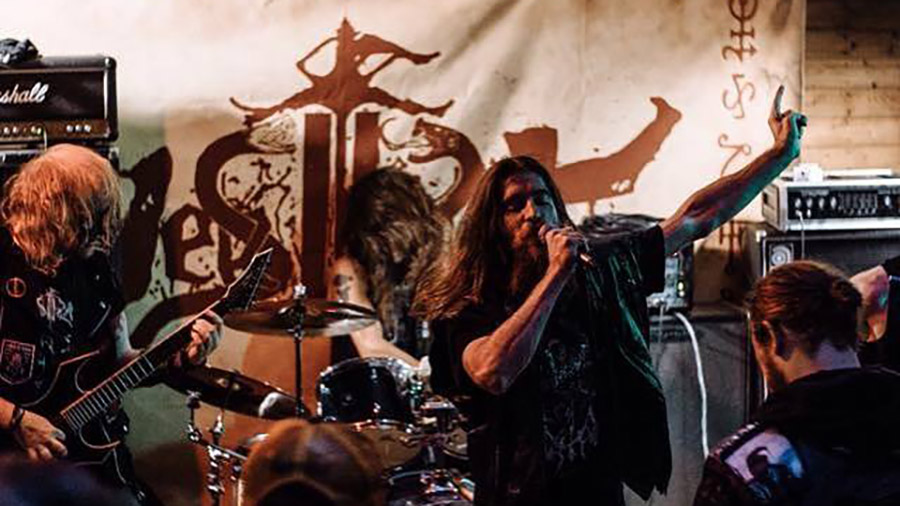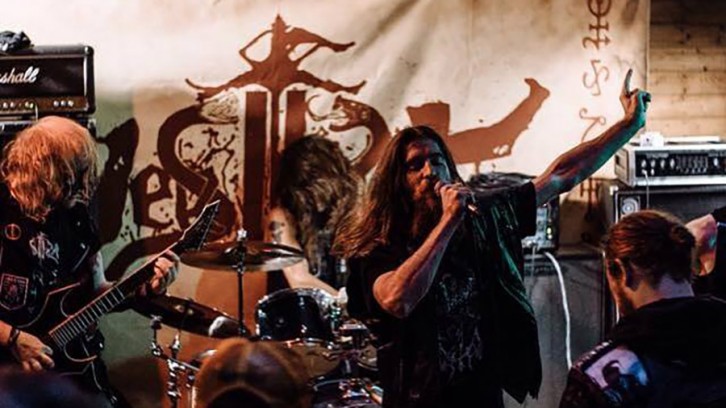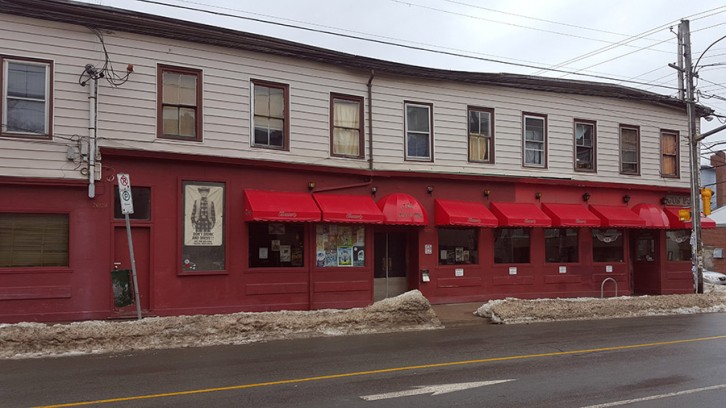Music
Halifax’s blackest and bleakest metal finds a home at Gus’ Pub
Guitarist: isolation, nature ‘drives the artistic energy’ of black metal

caption
Thaumiel performed live at Gus' Pub during 'Black and Bleak Metal Night'
caption
Pro SkateboardsThaumiel live at Gus’ Pub
When Harry Neal John MacRae enters Dee Dee’s ice cream shop on a windy Tuesday afternoon, he looks like a metalhead: long hair, black clothes and a beard that’s on its way to rivalling Billy Gibbons.
MacRae — vocalist for Thaumiel — sips on a ginger beer as he explains why the band felt driven to go orthodox.
“For me, black metal is all about the spiritual aspect. Without it, the music loses its sincerity. There aren’t many bands (in Halifax) who embody the culture of black metal.”
The black metal culture MacRae refers to is one where its practitioners openly practice Satanic and/or devil worshipping.
These themes are infused in the lyrics and live performances.
Thaumiel, formed in 2013, are known to douse themselves in animal blood — acquired from butcher shops — while performing on stage.
“There is a chemical reaction that occurs in the brain of some individuals when they smell blood,” he explains. “It’s like we’re preparing the audience for war.”
Black metal — a subgenre of heavy metal known for its extreme, aggressive drumming, shrieking vocals and demonic lyrics — began in the early ‘80s with a smattering of bands throughout Europe before finding its footing in Norway in the late ‘80s and early ‘90s.

caption
Gus’ Pub has a history with Halifax’s heavy metal scene.Black and Bleak Metal Night at Gus’ Pub Friday, featured bands that are shaking up Halifax’s black metal scene. Though black metal has had a presence in Halifax for nearly 20 years, a recent influx of new bands is changing the scene.
Thaumiel is the name of one of the Qliphoth in the Kabbalah, the shadow side of the Kabbalistic Tree of Life, a mythological concept that connects all forms of creation. Thaumiel is represented by two giant heads with bat-like wings.
It won’t be most people’s first choice when considering baby names, but if you’re forming an orthodox black metal band, the name couldn’t be a better fit.
How did we get here
Graham Ferguson, guitarist for Hellacaust, says when the band formed 16 years ago, the only place you could see a black metal band was the Pavilion.

caption
Halifax’s all-ages venue, The Pavilion was the only place to go for black metal in the early 2000s.“When I started seeing (metal) bands here, it was always all-ages shows,” he recalls with a chuckle.
He says Black Moor, a thrash metal band formed in 2005, had a massive influence on the metal community and helped to develop the heavy metal scene in Halifax.
The recognition from the community has grown, says Ferguson, which he partially attributes to the influx of new bands.
“There’s a lot more crazy musicians now then there were back (when we started),” says bandmate Troy Kirker, “especially the younger guys.”
Isolation
These “younger,” “crazier” musicians aren’t usually from Halifax, as it turns out.
Sean McIntyre — who does double duty as guitarist for both Thaumiel and Nightfall — says that a lot of the newer black metal bands are coming from Cape Breton.
As he sips his third coffee of the day, McIntyre says “there is a lot of isolation, a lot of access to being around nature (that) really drives the artistic energy… and reflects what (these bands) are doing.”
McIntyre says black metal is a niche genre within heavy metal to begin with, making it hard to access for listeners.
MacRae says the decadence of rural Nova Scotia reflects the indulgent themes of black metal.
“(The wilderness) allowed me to connect with the sensation of darkness. I was always searching for dissonance and I found it in black metal.”
A quick and dirty history of black metal


J
Jeanette
M
MetaViking